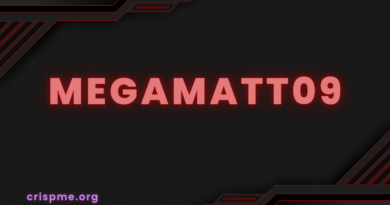Bad Wordle To Spoil
Introduction
Bad Wordle To Spoil, a daily word puzzle that has gone viral online, draws players in with its ease of use and difficulty. Different techniques have arisen as players worldwide compete to complete the puzzle in the fewest attempts possible. Despite not thinking of themselves as competitive, one author did, however, come up with a novel solution that not only solved the challenge but also demonstrated their ingenuity and inventiveness. This tactic, which looked too wonderful to be true, revealed an original approach to problem-solving. We’ll go into this narrative and examine the author’s journey as well as the ramifications of their clever finding.
What is Bad Wordle To Spoil?
For those who are unfamiliar, Bad Wordle To Spoil is a daily word puzzle game in which players must guess a five-letter word six times. Every guess offers feedback: if a letter is right and in the proper location, it becomes green; if it’s incorrect and in the wrong position, it turns yellow; if it’s not in the word at all, it turns gray. With its straightforward rules and difficult word guessing component, Bad Wordle To Spoil has become a global hit, attracting players from all over the world. Its broad appeal may be attributed to its flawless balance of difficulty and depth, which calls for both skill and luck.
The Nature of Bad Wordle To Spoil Strategies
Bad Wordle To Spoil code cracking techniques have been devised by players, ranging from using word patterns to starting with common vowels. While some choose to use statistical methods, such as measuring letter frequency, others depend on experience and intuition. Bad Wordle To Spoil appeal is its unique combination of logic and luck, which makes every puzzle a tiny victory. Every player might have a very unique method that reflects their style of thinking and solving problems. Since there is no one right method to play, part of what makes the game so captivating is the variety of techniques available. Because of its fluctuation, Wordle always presents a novel and thrilling challenge.
The Author’s Journey
The author’s chance meeting with Bad Wordle To Spoil opens our narrative. At first, they played for enjoyment, taking pleasure in the daily challenge and the cerebral exercise. But soon, their curiosity took them on an inventive and exploratory journey. Driven by an insatiable curiosity and an ability to think creatively, the writer set out to find a fresh approach. They were suspicious when they noticed discrepancies and patterns that made them want to look further. This quest was much more than simply piecing together the solution; it was also about defying expectations and grasping the fundamental principles.
Discovering the New Strategy
The eureka moment struck suddenly and proved to be the breakthrough. After trying out several strategies, the writer discovered one that appeared to ensure success. It was difficult to accept at first—it was as though they had cracked a code. As they experimented with their newly discovered tactic, anxious to see if it would regularly work, excitement and doubt mixed. They painstakingly recorded their findings, honing their technique with every try. Their creative thought and methodical approach made it possible to develop a genuinely original strategy that was well-received by the Bad Wordle To Spoil community.
The Cleverness Behind the Strategy
Finding important letter combinations and patterns that commonly surfaced in Bad Wordle To Spoil answers was the author’s main tactic. Their concentration on these patterns allowed them to drastically reduce the pool of potential words. This approach demonstrated the author’s ingenuity and originality because it needed a thorough grasp of frequency analysis and language structure. The method included more than just hazard a guess; it involved a methodical effort to solving the riddle. It showed a remarkable amount of creativity and problem-solving ability, making the game a more predictable and doable task.
Why the Author Isn’t Competitive
Even with their revolutionary finding, the author doesn’t see themselves as rivals. Rather, the intellectual challenge and process of solving riddles provide them satisfaction. For them, the adventure is more in the process of finding than in the final destination. They were able to enjoy the elegance of their plan without feeling the strain of competition because to this mentality. They enjoy the mental challenge and fulfillment that come from comprehending intricate systems. This viewpoint emphasizes an appreciation for the inherent benefits of solving puzzles as opposed to seeking approval or success from others.
Testing the Strategy
The strategy’s early trials showed promise. The author often figured out the problems in fewer tries, frequently deciphering the code on the third or fourth try. They improved their method, making adjustments to take irregularities and uncommon terms into consideration. Their continued high success rate bolstered their confidence in the strategy’s efficacy. With every exam passed, the player gained confidence in their approach and a deeper comprehension of the game’s fundamentals. The author’s dedication and analytical abilities were evident in this iterative process of testing and improving the plan.
Reactions from the Bad Wordle To Spoil Community
The Bad Wordle To Spoil community responded to the author’s revelation in a variety of ways. Many expressed their admiration for the inventiveness and excitement about the novel strategy. But there were other objections. Some players believed that these tactics detracted from the difficulty and excitement of discovery that were the main draws of Bad Wordle To Spoil. The discussion brought to light an underlying conflict in the gaming community between innovation and upholding the essence of the game. It prompted conversations on the nature of puzzle pleasure and how sophisticated methods affect casual players.
The Impact of the Strategy
Not only did the author’s approach alter their gaming experience, but it also had an impact on other gamers. A few took up the technique, admiring its ingenuity. Some viewed it as a challenge to come up with even more effective plans. This revelation had a cascading effect that brought to light the dynamic nature of the Bad Wordle To Spoil community and the ongoing growth of gameplay techniques. It illustrated how a single creative thought might spark more innovation and experimenting. Talks about game design, justice, and the boundaries of creativity were sparked by the strategy.
Creativity in Puzzle Solving
When it comes to solving puzzles, creativity is essential. The way the author approached Bad Wordle To Spoil is a perfect example of how unconventional thinking can produce creative answers. This inventiveness isn’t just useful on Bad Wordle To Spoil; it’s also a useful ability in a lot of puzzle games, where novel solutions frequently result from non-traditional thinking. Players might find more effective or engaging ways to solve problems by experimenting with different approaches and questioning preconceived notions. The author’s own experience emphasizes how crucial creativity is to raising the level of fun and complexity of puzzle-solving exercises.
Balancing Fun and Spoiling
A game may be improved with cunning tactics, but there’s a thin line between that and being too simple. Due to the author’s experience, there are significant ethical concerns about the dissemination of game-changing techniques. Although their strategy demonstrated incredible inventiveness, it also ran the risk of making the game less difficult for subsequent players. This moral conundrum frequently arises in gaming communities, where it’s important to carefully maintain the balance between individual success and group satisfaction. The author’s trip emphasizes the need of sharing information responsibly and taking into account its wider effects on the player base.
Personal Reflections
As she considers their voyage, the author experiences a mixture of reflection and pride. They take great pride in their cunning and the original solution they came up with. They are conscious of the effects on the Bad Wordle To Spoil community, though. Striking a balance between one’s own success and the response of the community has been a teaching experience that has provided insights into the wider ramifications of their finding. Their understanding of the social aspects of gaming and the obligations that come with participating in a shared experience has grown as a result of this self-examination. It serves as a reminder that creativity needs to be restrained by consideration for other players.
Lessons Learned
This encounter has taught the author several important things. They now understand the value of creativity in problem-solving and the excitement that comes with intellectual difficulties. They’ve also learned how important it is to strike a careful balance between information sharing and maintaining a game’s integrity. The author’s journey serves as a testament to the benefits of curiosity and the ability to think beyond the box for other puzzle fans. These teachings are not limited to Wordle; they provide insights that may be applied to a variety of intellectual endeavors and group settings.
Conclusion
In conclusion, the author’s discovery of a novel Bad Wordle To Spoil technique emphasizes how ingenuity and imagination combine to solve puzzles. Their path demonstrates the delight of intellectual discovery and the exhilaration of coming up with fresh answers, even if it is not competitive. This tale serves as a reminder of the countless opportunities that creativity and curiosity might uncover as the Bad Wordle To Spoil community develops. It invites users to value their own viewpoints and add to the diverse range of game experiences. In the end, the author’s journey is a celebration of the creative human spirit and the dynamic, ever-evolving world of puzzles.
FAQs
What is the new Wordle strategy discovered by the author?
The author discovered a strategy focusing on identifying key letter combinations and patterns that frequently appear in Wordle solutions, significantly narrowing down possible words. This approach relies on frequency analysis and a deep understanding of language structures to optimize guesses.
How has the Wordle community reacted to the new strategy?
Reactions have been mixed, with some players praising the ingenuity and others criticizing it for potentially spoiling the challenge of the game. This has sparked lively debates about the nature of fun and fairness in puzzle games.
Can this strategy be applied to other word games?
While the strategy is specific to Wordle, the underlying principles of frequency analysis and pattern recognition can be applied to other word games. These techniques can help players develop more effective approaches in various linguistic puzzles.
What makes a strategy clever in puzzle games?
A clever strategy in puzzle games often involves innovative thinking, deep understanding of game mechanics, and the ability to consistently achieve successful outcomes. It combines creativity with analytical skills to find new ways of solving challenges.
Is it ethical to share game-breaking strategies?
Sharing game-breaking strategies raises ethical considerations, as it can diminish the challenge and enjoyment for other players. Balancing personal achievement with community impact is crucial. Responsible sharing involves considering the broader implications for the player base.




